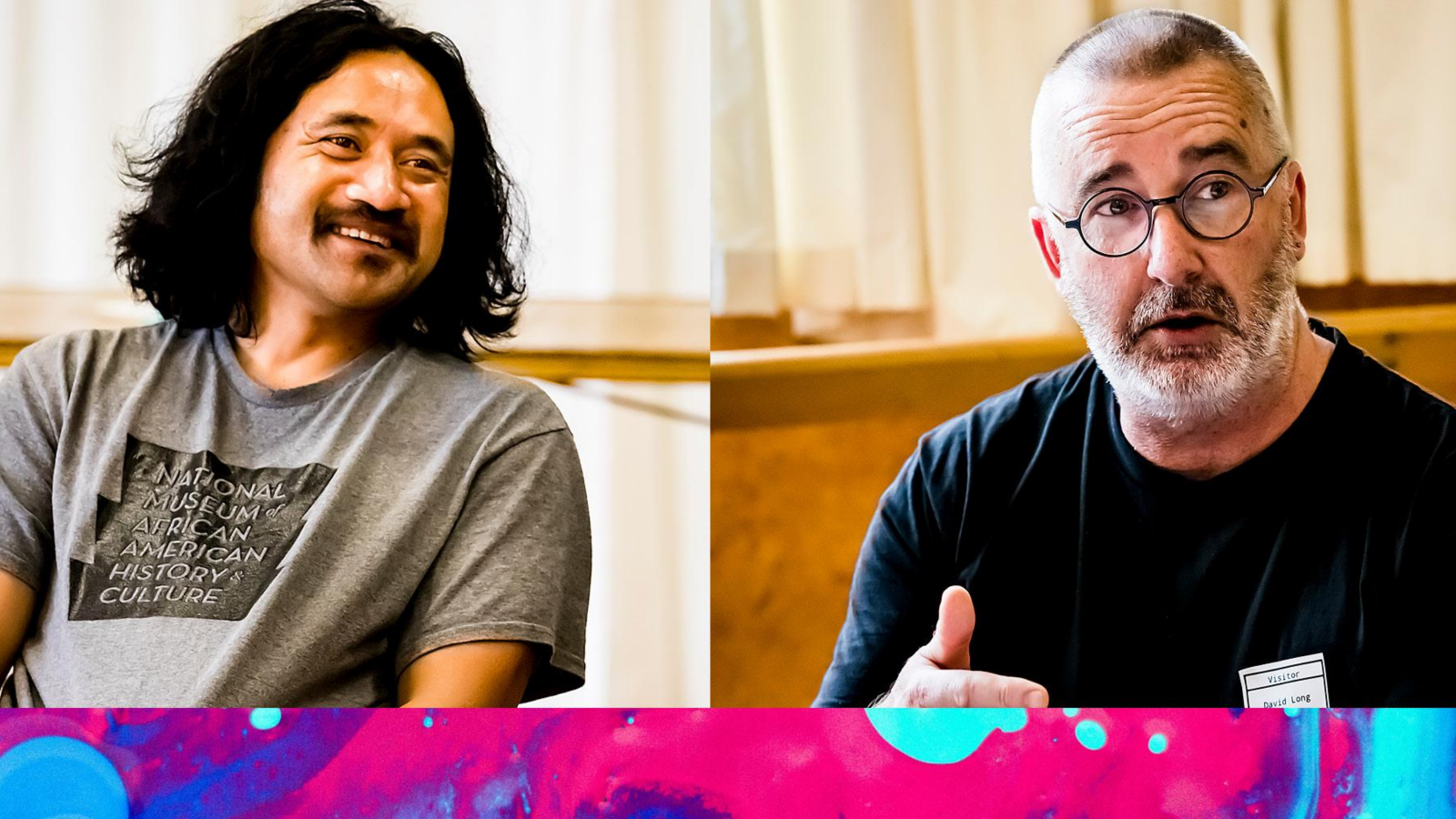
Track Zero was founded in 2018, and aims to deliver creative platforms for the arts, science, and other disciplines to inspire climate action. The University’s Professor James Renwick used part of his winnings of the 2018 Prime Minister’s Science Communication Prize to fund the What if Climate Change was Purple? project for the charity, and his donation was matched by the University.
“Telling the climate story through arts and culture can help people to feel, as well as know, about climate change, so they become more engaged, helping to bring about positive social change,” says Founder and Trustee Manager of Track Zero, Sarah Meads.
The funded projects include a collaboration between musician, composer and Miramar Creative Centre lecturer David Long, award-winning Pasifika choreographer Tupua Tigafua, and alumnus Tupe Lualua, who is a dancer, choreographer, and producer.
David Long was drawn to be part of the project for the prospect of highlighting climate change, which he says is “probably the most important issue of our time and needs the most radical action”.
“While making music about climate change might feel a bit ‘soft,’ I do think that being part of the conversation is important—and directing my efforts towards this is useful.”
Freshwater ecologist Dr Mike Joy from the School of Government is one of the 12 scientists involved with the project. He and another academic are mentoring Kāi Tahu performance artist Louise Potiki-Bryant to create 'Te Taki o te Ua/The Sound of Rain.'
“There are a lot of similarities between the creative process and characteristics of scientists and artists, they have a lot in common. It’s fascinating when you delve into it. Both want to discover and communicate—they’re both curious,” says Ms Meads, who is also an alumna of the University.
Another of the confirmed projects is the Whakaruruhau Collective, an accomplished group of poets and writers, including alumnae Cassandra Barnett (Raukawa), and Michaela Keeble, as well as Creative Writing PhD student Anahera Gildea (Ngāti Tukorehe), and writer/poets Nadine Anne Hura (Ngāti Hine, Ngāpuhi) and Anne-Marie Te Whiu (Te Rarawa). Their new work will use many mediums to explore knowledge and who has the right to exploit it, and whether the ethics of knowledge creation will impact the success of climate action.
As well as connecting artists and scientists and providing seed funding for projects, the Track Zero Trust helps provide expert advice to guide work in development, facilitates the group to meet in person and online and gives a letter of support to each project to allow them to seek further funding for their projects.
While the timeline for projects may have moved slightly due to COVID-19, Mr Long says, “the lockdown actually gave me quite a bit of time to play with ideas, and I felt a good distance from the other things I was ‘meant’ to be doing.
“It also made me think about what seems to me to be the fiction of our normal lives. So many things that seem like brute facts turn out to be abstract ideas—money, capitalism, growth. Climate change seems less abstract than the ways we create our lives.”
The project is expected to have one more funding round before the end of the year for the projects that get through to stage two development, and the initial season will be shown across a range of platforms by mid-2021.
